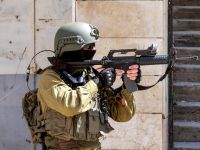Iraq has had contacts with the al-Qaeda organization and it would be a mistake to dismiss either Iraq or Iran as possible sponsors of the September 11 terrorist attacks on the United States, the chief of US intelligence said.
According to AFP, CIA Director George Tenet's comments in Senate testimony marked an important shift in emphasis for the US intelligence community which had previously discounted a connection between al-Qaeda and either Iraq or Iran because of their ideological and religious differences.
"As to where we are on September 11, the jury is still out," Tenet said. "As I said carefully in my statement it would be a mistake to dismiss the possibility of state sponsorship whether Iranian or Iraqi and we'll see where the evidence takes us," he said.
A US official, however, said the intelligence community's has not changed its view that the evidence does not link Iraq to the September 11 attack, and Tenet did not intend to suggest otherwise.
"There is nothing new in the last several months that changes our analysis in any way," said the official, who spoke on condition of anonymity.
The question of whether Iraq has secretly supported terrorist attacks by al-Qaeda on the United States has been at the center of a long-running debate in Washington.
The debate intensified following a disclosure by the Czech government last year that the lead September 11 hijacker Mohammad Atta met in Prague as recently as April 2001 with an Iraqi intelligence officer.
Tenet emphasized that the convergence of terrorism and weapons of mass destruction "pose a strategic threat to the United States that is not getting smaller," he said.
He said that despite US gains in Afghanistan and elsewhere, US diplomatic and military facilities were at high risk of attack by al-Qaeda, especially in East Africa, Israel, Saudi Arabia, Turkey, Pakistan and Afghanistan.
Referring to Iraq and al-Qaeda in an opening statement, he said, "Their ties may be limited by divergent ideologies, but the two sides mutual antipathies toward the United States and the Saudi royal family suggests that tactical cooperation between them is possible."
Iraq, meanwhile, is expanding its civilian chemical industries in ways that could be quickly diverted into production of chemical warfare agents; maintains an active and capable biological weapons program; and continues to pursue missiles prohibited by UN resolutions, Tenet said.
"We believe Saddam never, ever abandoned his nuclear weapons program," he conveyed. (Albawaba.com)
© 2002 Al Bawaba (www.albawaba.com)







